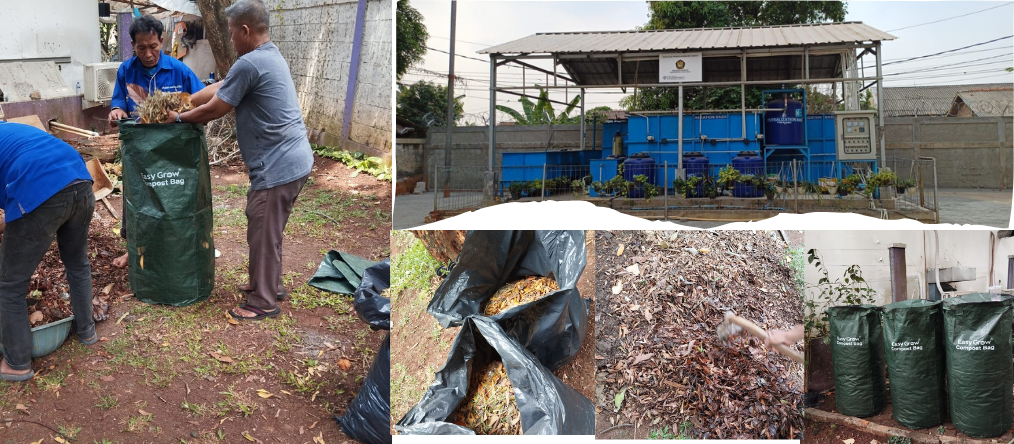Pancasila University’s Faculty of Pharmacy continues to be committed to protecting the environment by implementing an organic and inorganic waste management program. This program aims to reduce the negative impact of waste on the environment and increase student and staff awareness of the importance of good waste management.
Organic Waste Treatment
Organic waste generated from laboratory and canteen activities is treated through a composting process. This process involves the collection of food scraps, leaves, and other organic materials which are then processed into compost. The resulting compost is used as fertilizer for the gardens around campus, thus creating a sustainable cycle.
Inorganic Waste Treatment
For inorganic waste, the Faculty of Pharmacy has an IPAL (Waste Water Treatment Plant) to treat Waste Water so that it can be disposed of/reused after a filtering process. The Faculty of Pharmacy works with a recycling company to manage waste such as plastic, glass, and metal. These wastes are collected separately and sent to the recycling facility for further processing. In addition, a campaign to reduce the use of single-use plastics is also intensified in the campus environment.
Education and Environmental Awareness
As part of this program, the Faculty of Pharmacy also conducts various education and training activities on waste management. Students and staff are invited to participate in workshops and seminars that discuss environmentally friendly waste management techniques. In addition, posters and brochures on the importance of good waste management were distributed across campus.
Positive Impact
This waste treatment program has had a significant positive impact. The volume of waste disposed of in landfills has drastically reduced, and environmental awareness among students and staff has increased. Faculty of Pharmacy Universitas Pancasila hopes that this program can serve as an example for other educational institutions in their efforts to preserve the environment.
